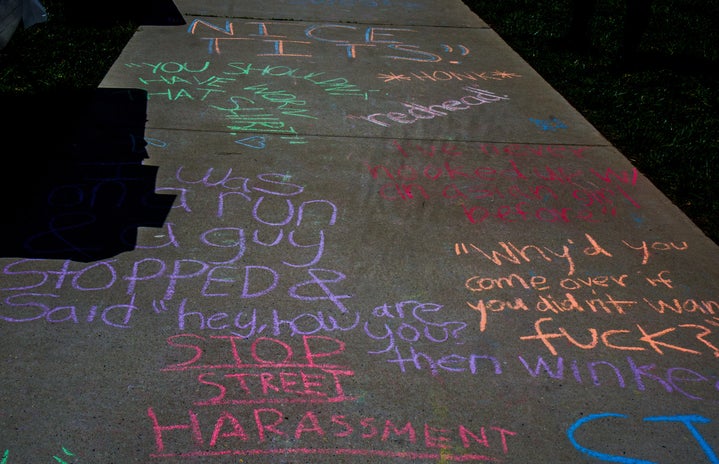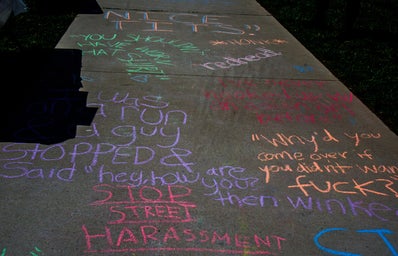With Women’s History Month nearing an end, women student-leaders make their mark at the University of Maryland are working to make resources and information about sexual assault and safety more available to those in College Park.
From small table events around campus to 10-hour protests on McKeldin, groups such as Preventing Sexual Assault are constantly searching for new ways to spread awareness.
Studies by RAINN report that college-aged women between the ages of 18 and 24 are at an increased risk of experiencing sexual violence. However, sexual assault remains one of the most underreported crimes on college campuses.
Reports of indecent exposures in College Park in 2022 were more than double the amount from the previous year, leaving many Maryland students feeling frustrated and confused. For sophomore criminal justice major, Natalia Isabal, the spike in reports goes beyond numbers on a page.
“There was a man who was…knocking on [sorority] doors… exposing himself to the women who lived there,” Isabal said.
As vice president of philanthropy for the university’s Alpha Chi Omega chapter, Isabal takes pride in the sorority’s mission of domestic violence awareness and prevention. The chapter house operates as a registered safe house for those fleeing domestic violence situations and offers a place to stay to both community members and students.
The chapter has raised nearly $10,000 within the last year to support organizations like House of Ruth, which is a non-profit organization with the goal of empowering women, children and families who have experienced trauma, abuse and homelessness. Isabal is also an ambassador for PSA, a student-run organization dedicated to breaking down stigma surrounding sexual assault on campus.
“It won’t happen within a semester,” Isabal said. “With ample time and effort…we can teach everybody how [domestic violence] affects everybody.”
Misconceptions about sexual assault on college campuses can often define cisgendered, white women as the only victims and men as the only perpetrators. According to RAINN’s statistics, 23.1% of trans, queer and gender nonconforming students on college campuses have been sexually assaulted. The National Center on Violence Against Women in the Back Community found that for every rape reported by a Black woman in America, 15 more go unreported.
“Taking away that stigmatization is super important,” said PSA Co-President Anna Gerstein. “Normally that narrative is that it just affects [cis white] women.”
One of PSA’s most popular events, Occupy McKeldin, aims to spread awareness about sexual assault on campus each April during Sexual Assault Awareness Month. In previous years, PSA has hosted speakers such as Rachel Haines, who spoke on her experiences of sexual assault in gymnastics culture. The organization has also participated in the transnational Slut Walk movement and “Cat Calls of College Park,” chalking common cat calls onto sidewalks around campus to bring attention to everyday experiences of students.
This year’s Occupy McKeldin is set to take place on Friday, April 14.
“People don’t really like to talk about sexual assault,” Gerstein said. “It is something that happens, and we’re here to talk to people who want to speak with us about it.”
Worries surrounding the presence of sexual assault on college campuses are often heightened by a shared experience of all students: walking around after dark. While the university provides late-night transportation through NITE Ride,fear still remains for students who are required to travel at later hours.
“I don’t feel the safest, especially if it’s late at night,” said Penny Choi, a junior fire protection engineering major.
Many students have adapted their own methods of protecting themselves at night. For Isabal, it’s keeping her mom on the phone until she’s home safe from her late night sessions at McKeldin. Choi, a member of the engineering fraternity Theta Tau, keeps a “study buddy” with her when working into later hours of the night.
Despite the challenge of bringing awareness to such stigmatized issues, women at UMD are still finding ways to support each other.
The CARE crisis line is open 24 hours throughout the fall and spring semesters, offering students a place to share their experiences with trauma and navigate their options. Through small, constant actions such as selling merch, hosting guest speakers and communicating with the student body, PSA is aiming for large change.
“We’re not mandatory reporters,” Gerstein said. “Just simply students that want to help other students.”


